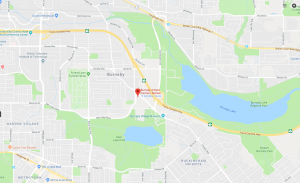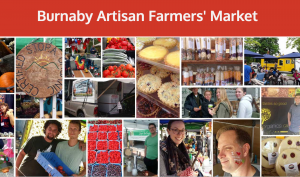Let your dreams outgrow the shoes of your expectations. – Ryunosuke Satoro
Group interests, Goals and Reason for Choosing Artisans Farmer’s Market:

As avid learners, our group consists of diverse individuals with a range of experiences all applicable to this project. Many of us are advocates of nutrition, food justice, food security, and community development. We want to learn more about our community’s food system and actively engage in improving it. We believe Yakini’s wise words that “anybody doing work in a community needs to have humility” is important for establishing an appropriate mindset when working on this project (LivableFutureBlog, 2013). To bring about meaningful change within a community, we must not generalize but provide specific help to the community. That means we should actively learn more about the community’s culture, history, and aspirations. We strongly believe accessibility and knowledge of farmer’s markets is lacking and this is a problem because there are so many benefits. Farmer’s markets encourage people to buy groceries from local sources which supports local agriculture and economy.

One of our group goals will be to target a key challenge in asset-based community development which is to foster an endogenous process (Mathie & Cunningham, 2003). Our aim is to provide beneficiary assistance in helping the market collect data to understand their clients without creating dependency on our efforts. Through the collection of data, we anticipate to methodically classify the reasons customers decide to shop at Artisans Farmer’s Market (Burnaby) to better understand the target market. Secondly, we hope to address and better understand the concern for customer uncertainty and variability when shopping at the farmers’ market. With this information we will formulate ways to increase retention.
Therefore, our group chose to work with Artisans Farmer’s Market (Burnaby) because of the opportunity to apply our knowledge of food security, food justice, and nutrition in an engaging community. We believe farmer’s markets are an essential source for people to access safe, nutritious, and culturally appropriate food by supporting local farmers, having a variety of foods from various cultures, and educating customers on nutrition awareness.
Community Partner:

The community partner for this project is Tara Immell who is the general manager of the Artisans Farmer’s Markets Society (AFMS) which boasts three locations including Burnaby, Ambleside and Lonsdale.
Over the past year, AFMS and UBC Faculty of Land and Food Systems has collaborated through the LFS 350 course to provide students hands-on experience to target local food vendor engagement and investigating the affects of weather on consumer participation.
This semester, our group was assigned to the Burnaby Market hosted at Burnaby City Hall on Saturdays running through the months of May till October. It first started on June 13th 2008 situated adjacent to the lovely Deer Lake Park where vendors, food enthusiasts and community members gathered to join in for the fun! The Burnaby Market featured several exciting booths including a book exchange for lively readers, live music and a wide range of activities for children including a kids play tent and games table. While browsing the numerous stalls, one can also enjoy the fresh foods available from on-site food trucks.

This area’s main demographic is the Asian population and our community partner is hoping to tailor the market to meet their interests. One of our goals through this project is to collect information through surveys on the key demographic of the market’s clients and to understand how we can tailor marketing tactics to address this population.

There has been previous work done between AFMS and UBC LFS students. Students working with AFMS last year accumulated important data between the vendors of AFMS and determined the core reasons why farmers and other vendors chose to sell their products at their markets. The UBC LFS students documented the data recorded and revealed that the farmer’s preferred selling specifically at the AFMS mainly because of the people involved in the market, the convenient parking and the location.
First Impressions:

Meeting as a group for the first time was motivating. With the guidance of Tara and the diversity of our interdisciplinary experiences, we were confident in our skills and ideas in contributing to the success of the Burnaby Farmers Market. During our first meeting, we delved through a large storage box of relics from the past. This included miscellaneous flyers, ticket stubs, coupons, clippings and many more. It was fairly disheartening to learn that many of these creative ideas were not as effective as imagined and the resulting amount of resources wasted. From this, an important concept from Sirolli’s TED talk came into mind: it does not take an individual or a small group of people to produce a change in the community (TED, 2012). Thus, we all began formulating ideas to involve more people to voice their opinions and contribute to the food system.
The principle of Asset-Based Community Development – where everyone in the community can contribute something, and the mentality to successfully build a community – seems simple and straightforward to apply when first discussed (Valley, 2018). This principle contrast the ideas that we initially had – only looking into external sources without involving the locals. We then started to reconstruct our ideas with the locals in mind. As we move forward we hope that we can incorporate this principle into our project for an effective method to aid the Burnaby Artisan Farmers Market.
Food Justice covers a broad and sensitive area that involves race, gender, and class inequalities (Valley, 2018). Thus, we all knew to tread carefully when discussing with the locals and the community about these issues. Furthermore, we do not know the severity of food injustice in the food system we are involved in. We hope that we can gain new insights once we begin to talk to the locals about these issues as we continue on with this project.
With the involvement of two important principles – Asset-Based Community Development and Food Justice – we began feeling uncertain. How do we incorporate the principles of Asset-Based Community Development and Food Justice into our projects? We hope that the proper incorporation of these principles will become clearer as we continue developing ideas, conducting discussions, and going out to the community to be involved.
In addition, our first few ideas of the project were not relevant to what Tara wants us to focus on. Her aim is to concentrate on marketing analysis, surveying, branding and engagement of the market rather than understanding the supporting operations of the food market. During our first meeting, it was eye-opening to learn about the strategic management of social media platforms and the research that has gone into understanding the key demographics. However, we learned that much of this is out-of-date. Thus, there was a shift in focus for the project in keeping information up-to-date. We hope that we will be able to come up with a project to meet Tara’s expectations.
What’s Next:

Our next objective is to compile all the information we gained into a coherent plan. Several ideas sprouted in our meeting, but before we take action within the Artisans Farmer’s Market, we wish to refine our thoughts. Our ideas ranged from public info-booths hosted at the library, rebranding the company’s vision, improved social media tactics and many more. In this short period of time, we had to target our efforts to fewer concepts. When Sirolli’s TED Talk mentioned the success to an organization, he said “No one did it alone!” His message exemplifies the essential component of success (TED, 2012). We must work together with the community. An asset-based community development plan is of the utmost importance. We plan to build meaningful relationships, communicate with individuals of the community, and see the organization through the eyes of a citizen to truly understand what needs to be done. Therefore, our plan is to stray away from external experts that deem their solution is the singular solution and avoid the “one size fits all.” Throughout the next few weeks, we hope to learn a more thorough understanding of the concepts revolving around communities that we can apply to Artisans Farmer’s Market and successfully express Tara’s vision for the future.
References:
LivableFutureBlog (2013, January 26). Malik Yakini: Working in communities as partners, not missionaries [Video File]. Retrieved from: https://www.youtube.com/watch?v=qO9_dgcxdj4.
Mathie, A., & Cunningham, G. (2003). From clients to citizens: Asset-based Community Development as a strategy for community-driven development. Development in Practice, 13(5), 474–486. Retrieved through the UBC Library Website.
TED. (2012, November 26). Ernesto Sirolli: Want to help someone? Shut up and listen! [Video file]. Retrieved from: https://www.youtube.com/watch?v=chXsLtHqfdM
Valley, W. (2018). Session 2: Food Justice + Asset Base Community Development. [Website Notes]. Retrieved from: http://lfs350.landfood.ubc.ca/session-notes/term-1-session-notes/session-2/